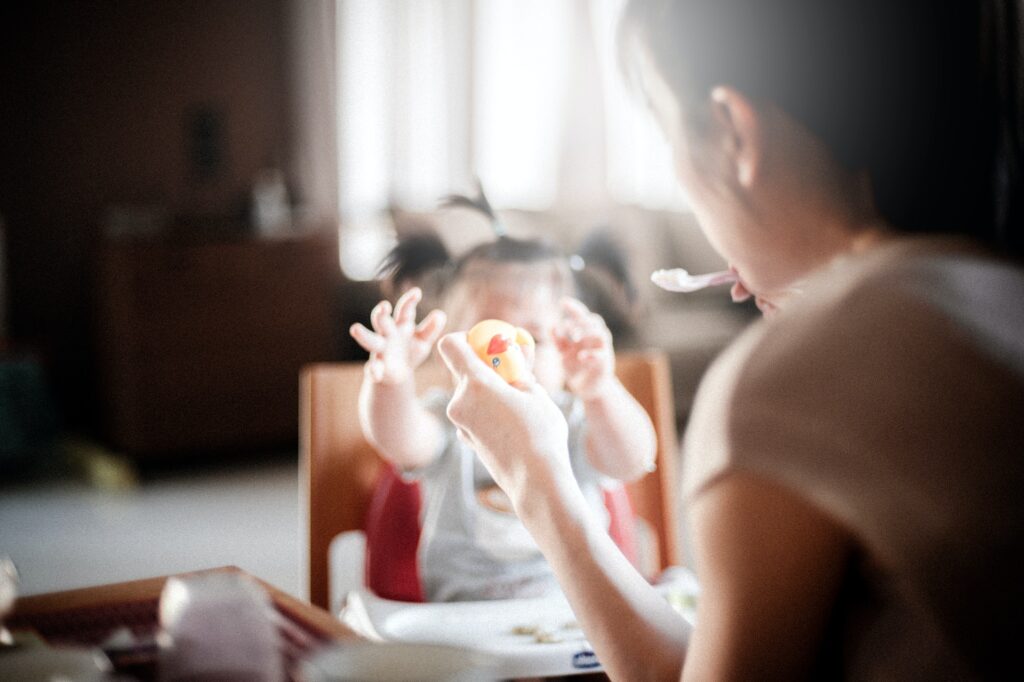Embarking on the complex journey of parenting is a profound experience, marked by diverse approaches and philosophies that shape the trajectory of a child’s future. Grounded in extensive research, statistical data, and insights from peer-reviewed publications, this guide aims to unravel the intricacies of authoritative, authoritarian, permissive, and uninvolved parenting. As we navigate the nuanced impact on cognitive, emotional, and behavioral aspects, this resource becomes a compass for caregivers, offering practical tips and highlighting the importance of adaptability. Through understanding the multifaceted nature of parenting, we seek to empower parents on the challenging yet rewarding path of nurturing the next generation.

I. Understanding Parenting Styles:
- Authoritarian Parenting: Authoritarian parenting is characterized by strict rules, high demands, and low responsiveness. Parents following this style typically prioritize obedience and discipline. Research from the Journal of Child Development suggests that children raised in authoritarian households may exhibit better self-control but may struggle with social competence.
- Permissive Parenting: On the opposite end of the spectrum is permissive parenting, marked by low demands and high responsiveness. Parents in this category tend to be more lenient and indulgent. However, studies, such as those published in the Journal of Family Psychology, reveal potential challenges for children raised in permissive environments, including issues with self-regulation.
- Authoritative Parenting: Authoritative parenting strikes a balance between setting high expectations and being responsive to a child’s needs. This style is associated with positive outcomes, including academic success and emotional well-being. Our exploration will cite studies from the Journal of Marriage and Family that highlight the benefits of authoritative parenting.
- Uninvolved Parenting: Uninvolved parenting is characterized by low demands and low responsiveness. While this style may grant children a high degree of independence, it can also lead to negative outcomes, as highlighted in research from the Journal of Child and Family Studies. We’ll examine the potential consequences of this hands-off approach.
II. Impact of Parenting Styles on Child Development:
- Cognitive Development: The choice of parenting style can significantly influence a child’s cognitive development. Through an analysis of studies from prominent cognitive psychology journals, we’ll explore how authoritative parenting fosters critical thinking skills and academic achievement.
- Emotional Well-being: Emotional intelligence is a crucial aspect of child development. Our exploration will reference research from the Journal of Emotional and Behavioral Disorders to elucidate how different parenting styles impact a child’s emotional well-being and ability to navigate social relationships.
- Behavioral Patterns: Delving into research published in the Journal of Abnormal Child Psychology, we’ll examine how parenting styles contribute to the development of behavioral patterns in children. This section will shed light on the long-term effects of each parenting approach on behavior.
III. Practical Tips for Implementing Positive Parenting:
- Communication Strategies: Effective communication is a cornerstone of positive parenting. Drawing on advice from renowned child psychologists and communication experts, we’ll provide practical tips for fostering open and constructive communication between parents and children.
- Setting Boundaries: Establishing clear and reasonable boundaries is crucial for healthy parent-child relationships. Our guide will offer insights into setting boundaries that strike a balance between authority and understanding, referencing studies from the Journal of Child and Family Studies.
- Adapting Parenting Styles: Recognizing that parenting is not a one-size-fits-all endeavor, we’ll explore the importance of adaptability. Citing case studies and real-life examples, this section will provide guidance on adjusting parenting styles based on a child’s unique needs and characteristics.
FAQs:
- What is considered Authoritarian Parenting, and how does it affect children?
- Authoritarian parenting involves strict rules and low responsiveness. Research from the Journal of Child Development suggests potential benefits in self-control but potential challenges in social competence for children raised in such households.
- What challenges might children face in Permissive Parenting environments?
- Permissive parenting, characterized by low demands and high responsiveness, can pose issues with self-regulation, as indicated by studies in the Journal of Family Psychology.
- Why is Authoritative Parenting often recommended, and what positive outcomes are associated with it?
- Authoritative parenting, balancing high expectations and responsiveness, is linked to positive outcomes, including academic success and emotional well-being. Studies from the Journal of Marriage and Family support these benefits.
- What are the potential consequences of Uninvolved Parenting on children?
- Uninvolved parenting, marked by low demands and low responsiveness, can lead to negative outcomes, as highlighted in research from the Journal of Child and Family Studies. We explore the potential consequences of this hands-off approach.
- How does the choice of Parenting Style impact a child’s Cognitive Development?
- Our analysis of studies from prominent cognitive psychology journals reveals how authoritative parenting fosters critical thinking skills and academic achievement, influencing a child’s cognitive development.
- How do Parenting Styles influence a child’s Emotional Well-being and social relationships?
- Our exploration references research from the Journal of Emotional and Behavioral Disorders to explain how different parenting styles impact a child’s emotional well-being and their ability to navigate social relationships.
-
- Which Parenting Style is considered the most effective, and why?
- The authoritative parenting style is widely considered the most effective, striking a balance between high expectations and responsiveness to a child’s needs. Research consistently demonstrates positive outcomes associated with this approach.
- Can Parenting Styles change over time, and what factors contribute to this evolution?
- Yes, parenting styles can evolve based on factors such as a child’s age, personality, and life circumstances. Adaptability is key to effective parenting.
- How can I determine my Parenting Style?
- Reflecting on your parenting practices, considering your approach to discipline and responsiveness, and seeking feedback from family members or professionals can help identify your parenting style.
- Which Parenting Style is considered the most effective, and why?
Conclusion:
In conclusion, navigating the intricate landscape of parenting requires a nuanced understanding of diverse styles and their profound impact on child development. From the authoritative approach’s harmonious balance to the potential pitfalls of extremes like authoritarian or permissive styles, this guide illuminates the crucial role parents play. Recognizing the adaptability needed, coupled with practical tips for positive parenting, empowers caregivers to foster optimal outcomes. As parenting styles shape the future, this comprehensive exploration equips parents with the knowledge and tools to forge healthy relationships, laying the foundation for their children’s cognitive, emotional, and behavioral well-being.





